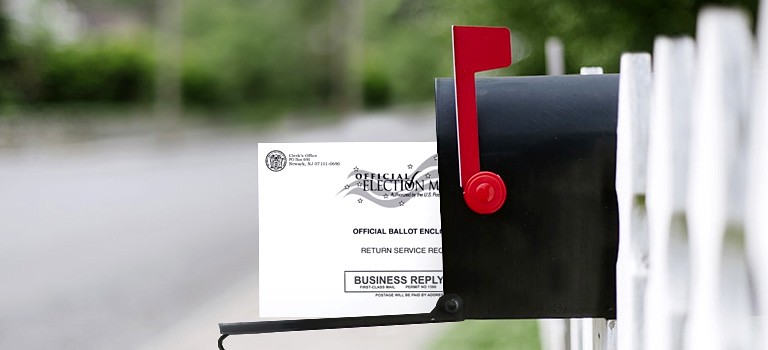Today's post comes from Chief William L. Fisher. In this post, Chief William discusses why absentee voting is important to him, and the rest of the Business Committee.
There were several ballot initiatives in 2019 that addressed important issues for the Seneca-Cayuga Nation. The first was an attempt to change the language of our Constitution to protect the membership of people whose parents were not married. Sue Channing discussed this referendum in a previous post. The second referendum was intended to ensure the constitutional right to vote by absentee ballot. This referendum did not pass. However, it is still an important issue that all of us need to understand. I want to give my thoughts on why absentee voting is important and share the Business Committee's perspective.
Currently, the Constitution and Bylaws of the Seneca-Cayuga Nation do not guarantee people the right to vote by absentee ballot. As written, our Constitution instructs that the election of officers will be conducted at the annual meeting in accordance with an election ordinance approved by the Business Committee. No Constitutional provision requires that absentee voting be allowed. It is up to the Business Committee to decide if absentee ballots will be allowed and to specify the voting method in the election ordinance. The current business committee chose to allow absentee voting in the upcoming September 19th, 2020 election. However, there is nothing that requires a future Business Committee to do the same. The other members of the Business Committee and I are committed to enshrining the right of all General Council members to vote in the Nation's Constitution. Our purpose in proposing a mail-in balloting process was to effectuate that goal and secure that right. We believe each of our tribal citizens should be guaranteed the right to vote and participate in our tribal government.
I lived in California and Oregon for most of my adult life because my family was relocated there in 1961 by the Bureau of Indian Affairs Relocation Plan. When we moved, we were removed from the tribal roll. In the eyes of the Tribe, we no longer existed, so my father, who had served on the Business Committee for many years, no longer had an opportunity to vote.
Before 1973, tribal members had to live in Oklahoma to be a member of the Tribe. In 1973 an amendment to the Constitution said you must live within 150 miles of Basset Grove Stomp Grounds to be a member. By 1973 a lot of families, including my own, had been relocated by the Bureau of Indian Affairs Relocation Program in the 1950s and 1960s to California, Oregon, Washington, and other areas. That meant that my family and many others didn't exist according to our own Constitution. In 1990 a referendum was presented to the voters asking to amend the Constitution to say, "The membership of the General Council shall be all members of the Seneca-Cayuga Tribe of Oklahoma eighteen years of age and older." This change to the Constitution passed, bringing many members back onto the rolls. After 1990, I didn't vote in the elections because I didn't know I could. My father died before he was allowed to vote by absentee ballot.
My father, and many like him, should have been able to vote and have influence over their government. I want every member of the General Council to have an opportunity to vote. It should not matter where someone lives, they should have a say in electing the leadership of the Seneca-Cayuga Nation. Further, this right should not be up to the whims of whatever Business Committee happens to be in power at the time of an election. This right should be part of the Constitution and Bylaws of the Seneca-Cayuga Nation so that every member of the General Council gets to vote in every election. Last year's referendum would have ensured that all Seneca-Cayuga have equal access to the ballot box, no matter where they live.
The process of putting referendums on the ballot is complicated and lengthy due to the oversight of the Bureau of Indian Affairs. Despite the challenges, the Business Committee and I are committed to ensuring every member of the Seneca-Cayuga Nation has equal access to voting, so everyone has a voice in picking our government, no matter where they live.
